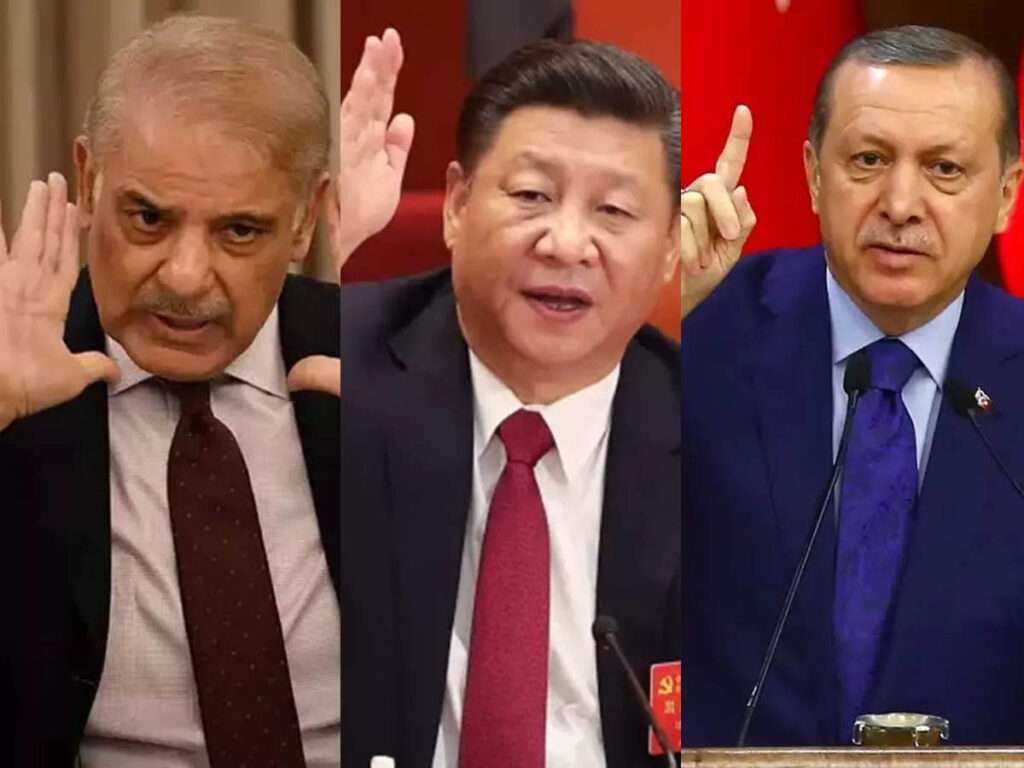In the complex and tension-laden arena of South Asian geopolitics, Pakistan’s latest overtures reveal a troubling pattern of reliance on external powers to compensate for its strategic shortcomings. Far from charting an independent course, Islamabad’s recent diplomatic and military manoeuvres underscore a pattern of petty attempts to destabilise India through proxy aggression and foreign military dependence. The visit of Pakistan’s Chief of Army Staff, Field Marshal Asim Munir, to Istanbul on May 26, 2025, where he met with Turkish President Recep Tayyip Erdoğan and Turkish Land Forces Commander Selçuk Bayraktaroğlu, is emblematic of this desperate gambit.
This calculated outreach follows the severe blow dealt to Pakistan’s terror apparatus by India’s Operation Sindoor, launched in response to the horrific Pahalgam terror attack that claimed 26 civilian lives on April 22, 2025. India’s resolute military strike against terror camps in Pakistan-Occupied Kashmir (PoK) dismantled critical terror infrastructure, signalling New Delhi’s zero-tolerance approach to cross-border terrorism. In the aftermath, Pakistan’s recourse to foreign military patronage illustrates not strength, but vulnerability masked as bravado.
The Unequal and Opportunistic Pakistan-Turkey Alliance
While Pakistan and Turkey have maintained formal military cooperation since the 1954 Treaty of Friendship and Cooperation, this alliance has often been lopsided, driven more by shared ideological affinity than balanced strategic benefit. Turkey’s military training to Pakistan and collaborative defence projects, such as upgrades to Pakistan’s F-16 fleet and the TAI TF Kaan fighter jet initiative, underscore a relationship where Turkey has historically been the more advanced partner.
Yet, recent events reveal Pakistan’s overdependence on Turkey’s military-industrial capabilities, with Islamabad seemingly begging for assistance amid India’s growing assertiveness. Far from being a confident military power in its own right, Pakistan appears intent on leveraging Turkey’s expanding drone and artillery technologies to reignite conflict with India, a move fraught with regional instability.
Istanbul Meetings: A Sign of Pakistan’s Strategic Weakness
The high-profile meetings between Field Marshal Munir, President Erdoğan, and Commander Bayraktaroğlu must be read as a stark admission of Pakistan’s precarious position. Coming on the heels of back-to-back visits to China, these engagements reflect Islamabad’s escalating desperation to secure tangible military backing.
Reports suggest that Turkey has pledged to support Pakistan should hostilities intensify. Such pledges are less a reflection of Pakistan’s strength and more an indication of its inability to confront its security challenges independently. In seeking to bolster its capabilities through external means, Pakistan risks escalating tensions and destabilising an already fragile South Asian order.

Operation Sindoor: India’s Unyielding Stand Against Terrorism
The Pahalgam terror attack was a brutal reminder of Pakistan’s continued use of terror proxies to undermine Indian sovereignty. India’s response, Operation Sindoor, was swift, calculated, and comprehensive, targeting terror camps linked to Lashkar-e-Taiba and Jaish-e-Mohammed within Pakistan-controlled areas.
This military offensive, which combined efforts from the Army, Navy, and Air Force, was complemented by decisive political measures, including suspending the Indus Waters Treaty and expelling Pakistani military advisers from India. These moves signalled that India would not tolerate Pakistan’s attempts at destabilisation through terror sponsorship.
The Fallout: Deteriorating India-Turkey Relations and Economic Repercussions
Turkey’s open support for Pakistan, including the controversial provision of over 350 drones and alleged deployment of Turkish military personnel to assist Pakistan, has provoked a severe backlash in India. This partnership has sharply deteriorated India-Turkey relations, with Indian citizens and businesses initiating widespread boycotts of Turkish goods and services.
Tourism and trade between India and Turkey have suffered considerably, highlighting the economic costs Turkey faces for its alignment with Pakistan’s aggressive posture. Turkey’s role in supporting Pakistan’s military ambitions marks a clear betrayal of India’s interests and deepens mistrust in an already strained bilateral relationship.

Echoes From Allies: Pakistan’s Dependence on China and Turkey
At the same time, Pakistan has doubled down on its strategic dependence on China, evidenced by Field Marshal Munir’s recent visit to Beijing just days before his Istanbul trip. China has reportedly pledged to provide satellite intelligence and technical assistance to Pakistan’s air defence systems, adding another layer to Pakistan’s foreign-backed military ambitions. From Chinese missile technology to Turkish drones, Islamabad’s growing reliance on outside powers exposes its inability to independently counter India and underscores a dangerous strategy of outsourcing aggression to geopolitical allies.
Together, these moves form a troubling pattern: Pakistan, instead of strengthening internal capacity or promoting regional peace, is tethering its national security policy to the whims of foreign patrons. This growing nexus among China, Turkey, and Pakistan is not only provocative—it represents a volatile front that could spiral into broader regional instability.

Wider Geopolitical Consequences: Escalating Risks and Regional Instability
Pakistan’s growing dependence on Turkey and China for military support does not show strength, it highlights its weakness. By turning to foreign powers for weapons and backup, Pakistan is exposing its inability to handle its challenges. Pakistan’s ties with Turkey go beyond just military needs; they share ideological goals that further complicate an already tense region. Asim Munir’s visit to Turkey, soon after meetings in China, clearly shows Pakistan leaning heavily on others to push its agenda against India.
India, in contrast, has responded with strong actions, like Operation Sindoor and cutting off key agreements with Pakistan, to defend its national interest. As Pakistan continues down this dangerous path of foreign dependence, the chances of a bigger conflict in South Asia only grow. Stability in the region now depends on avoiding reckless partnerships and keeping tensions from spiralling out of control.

